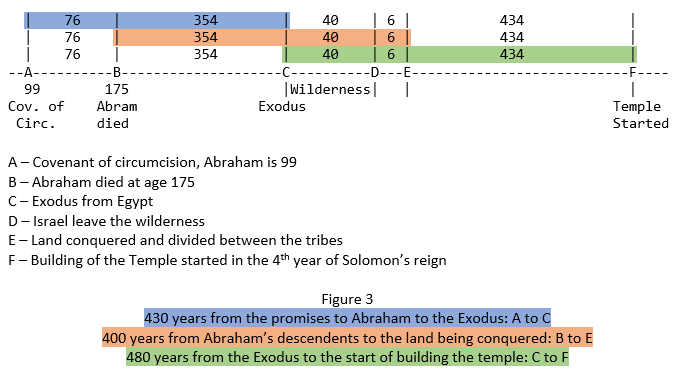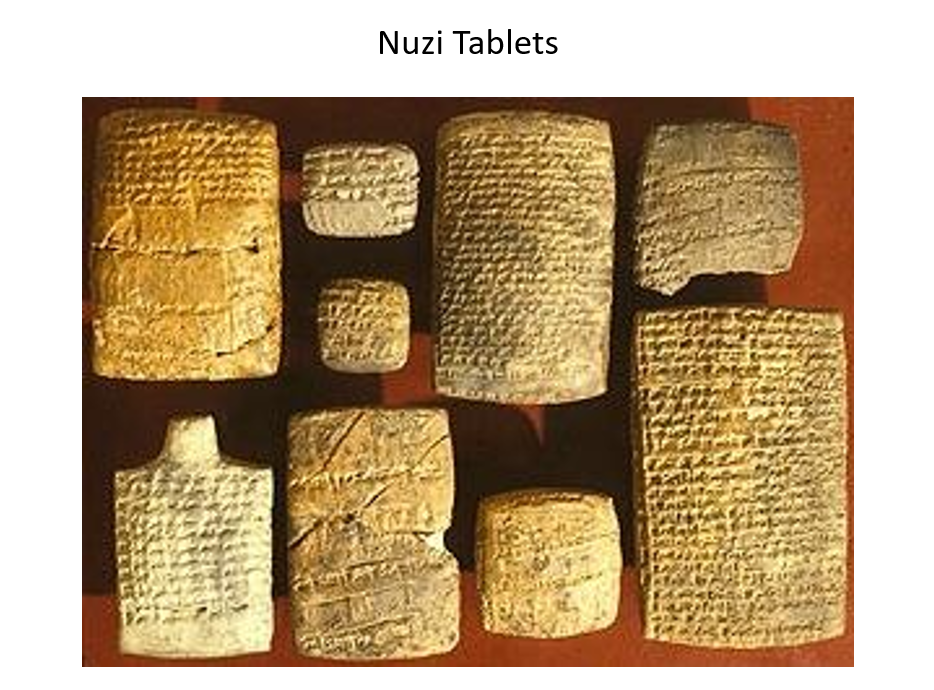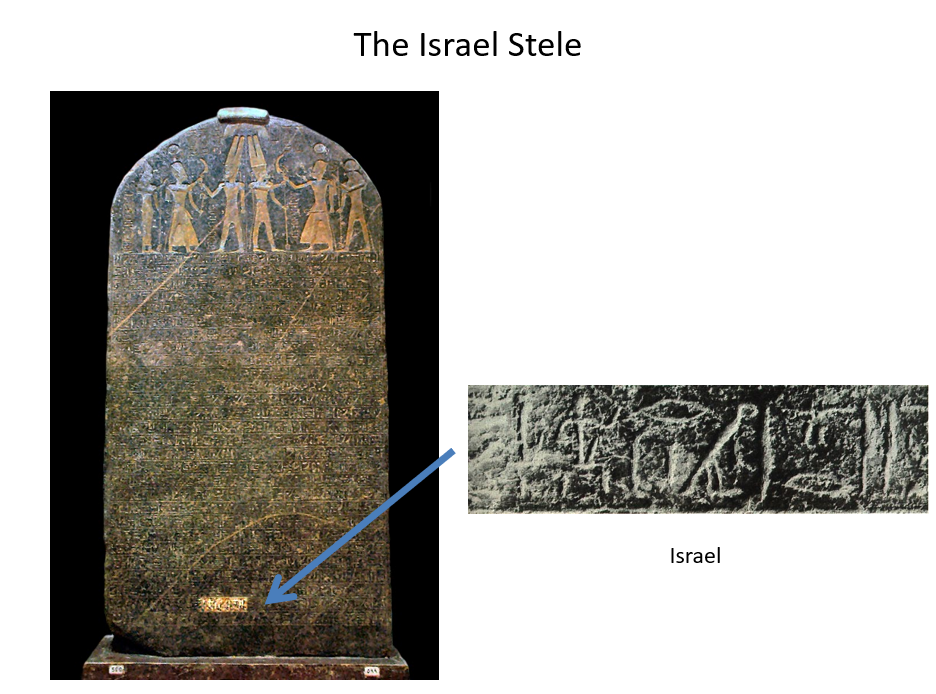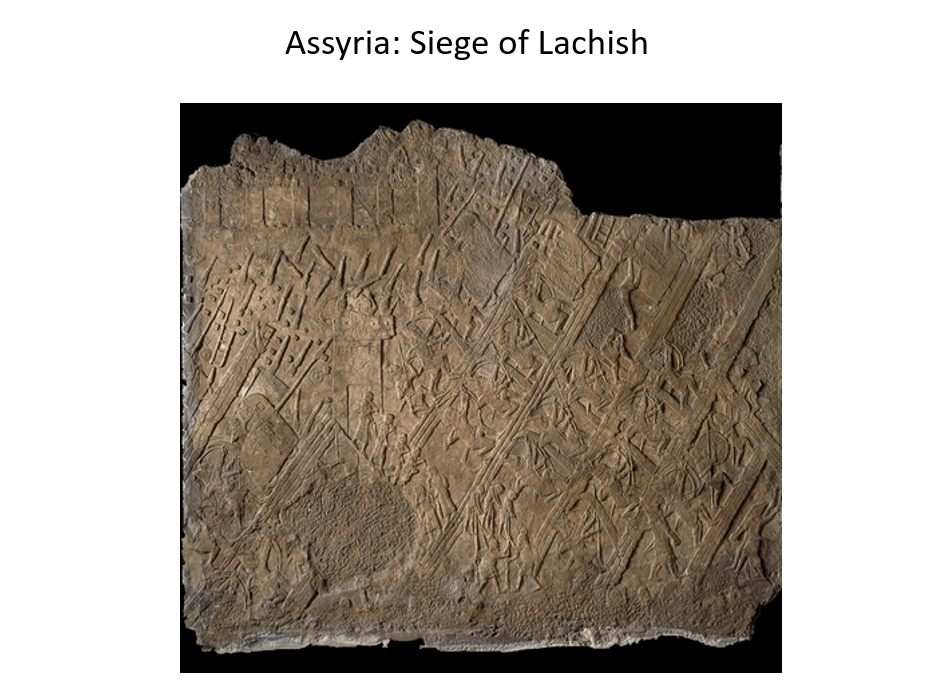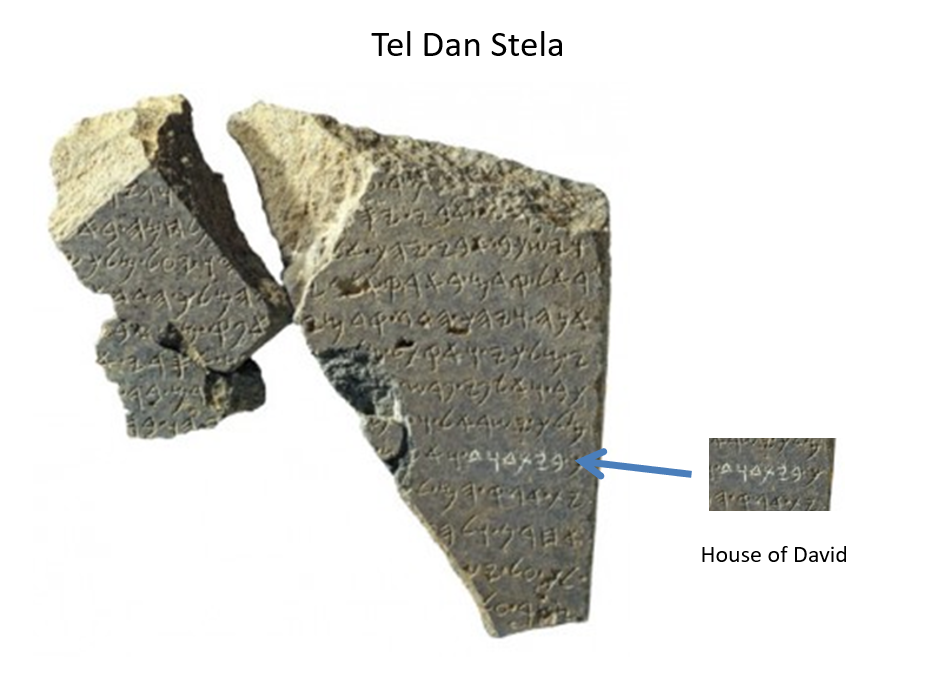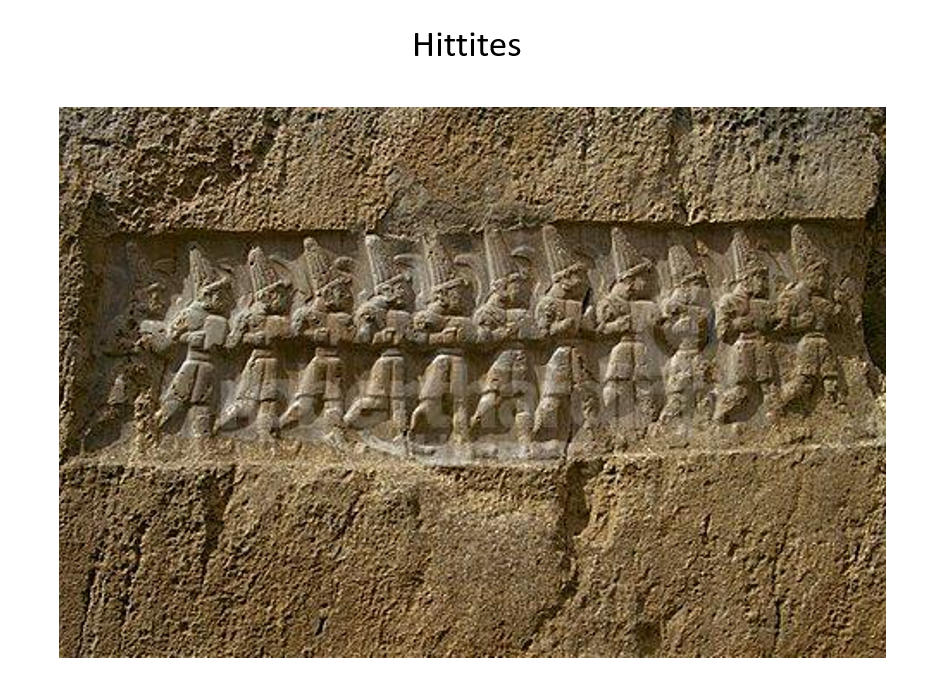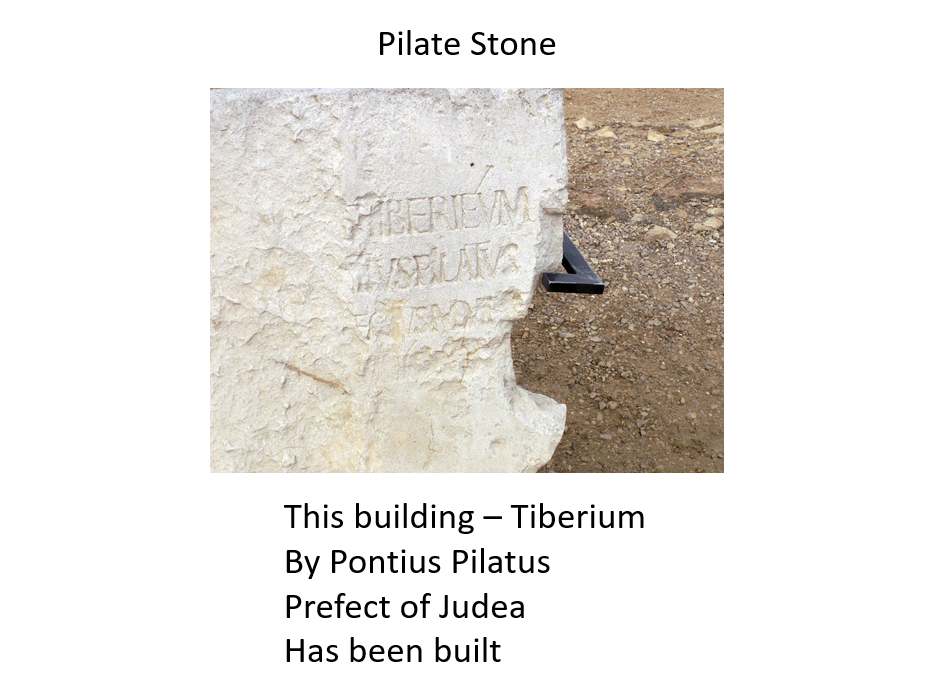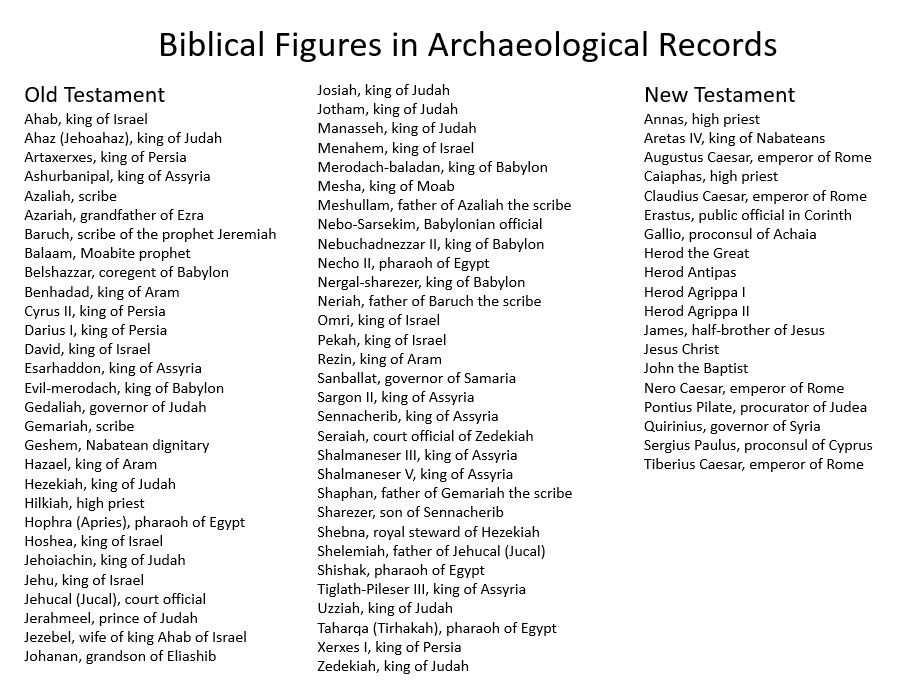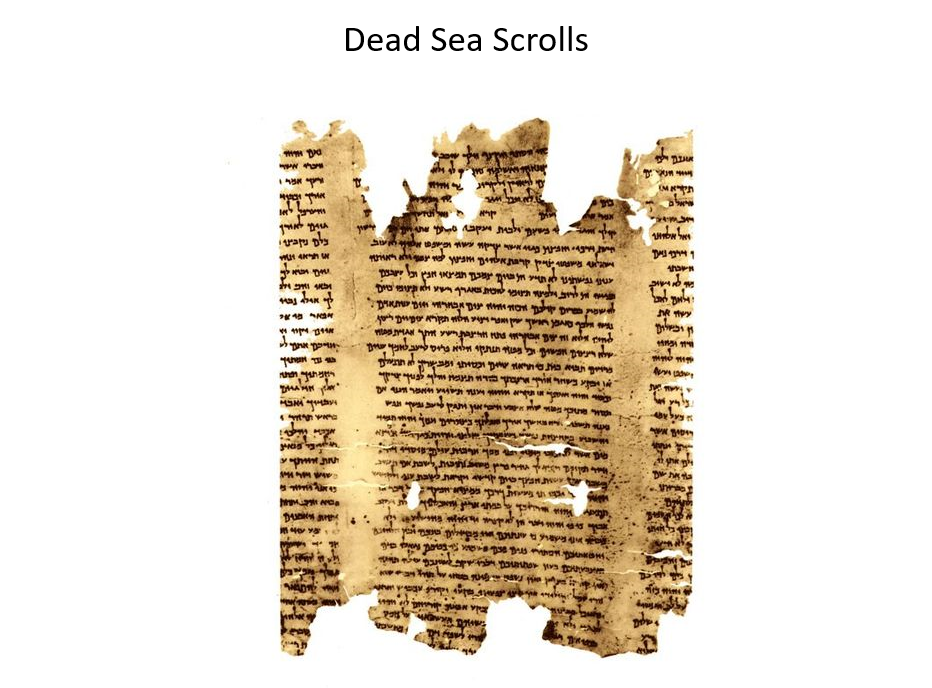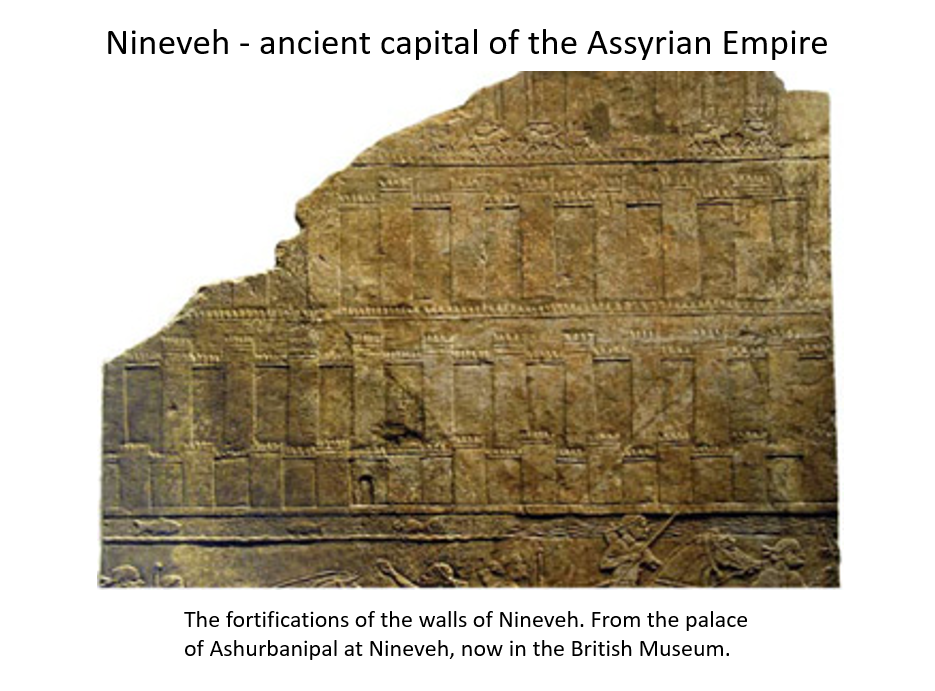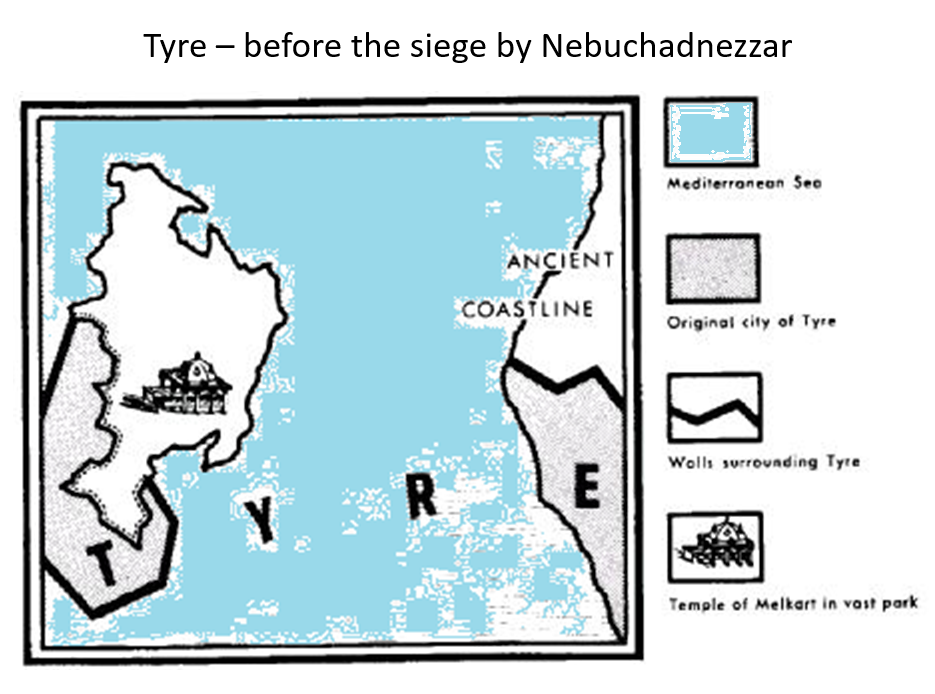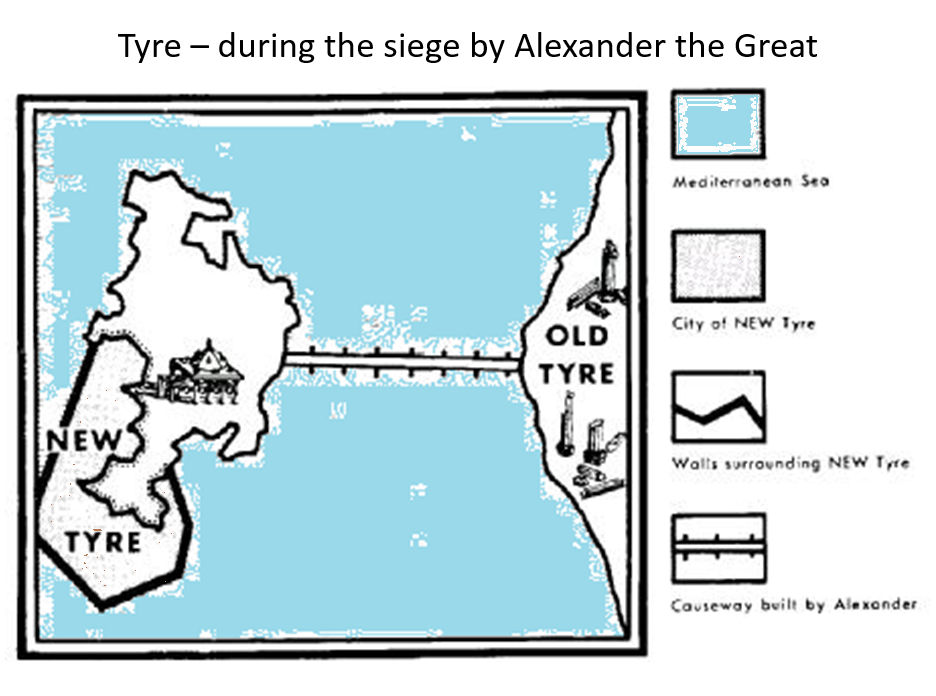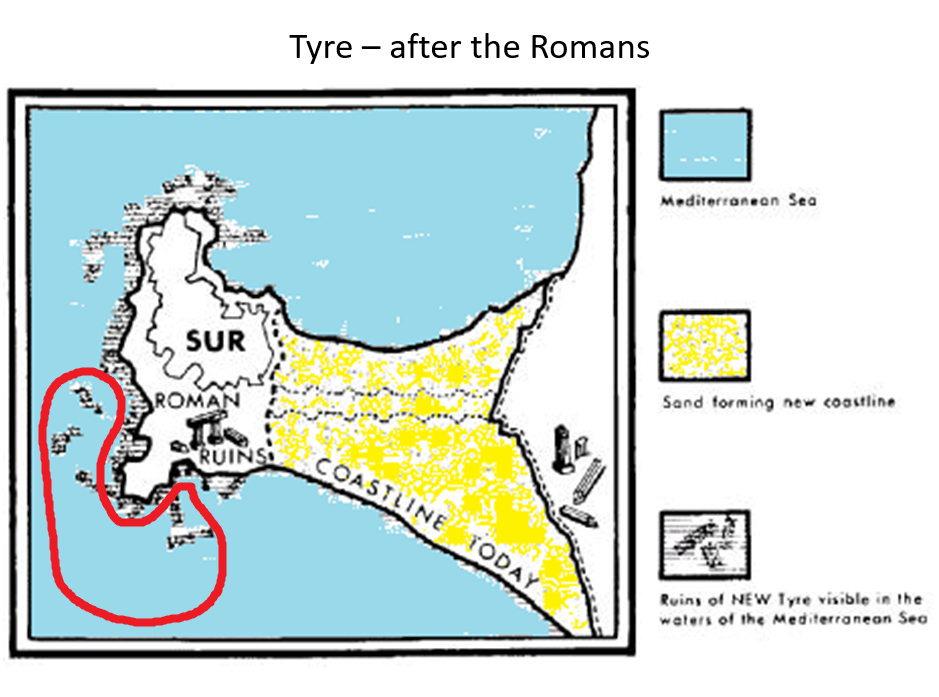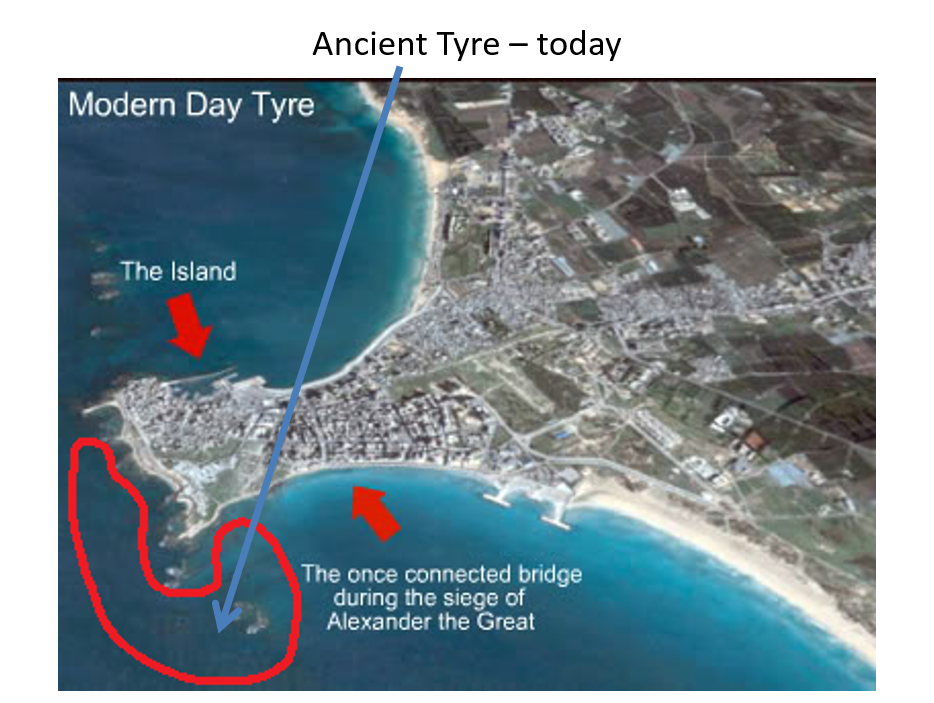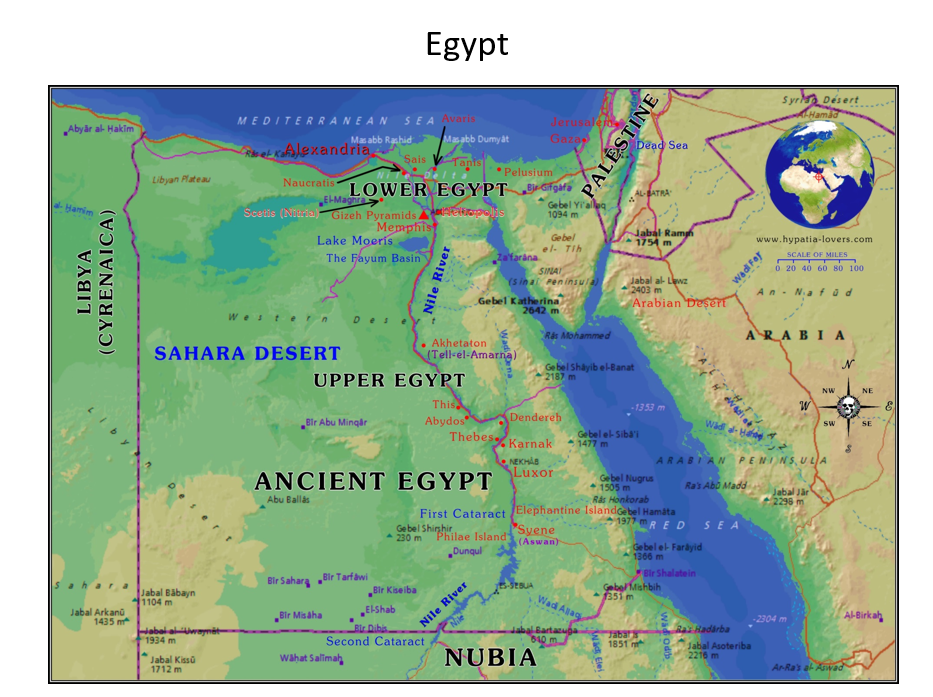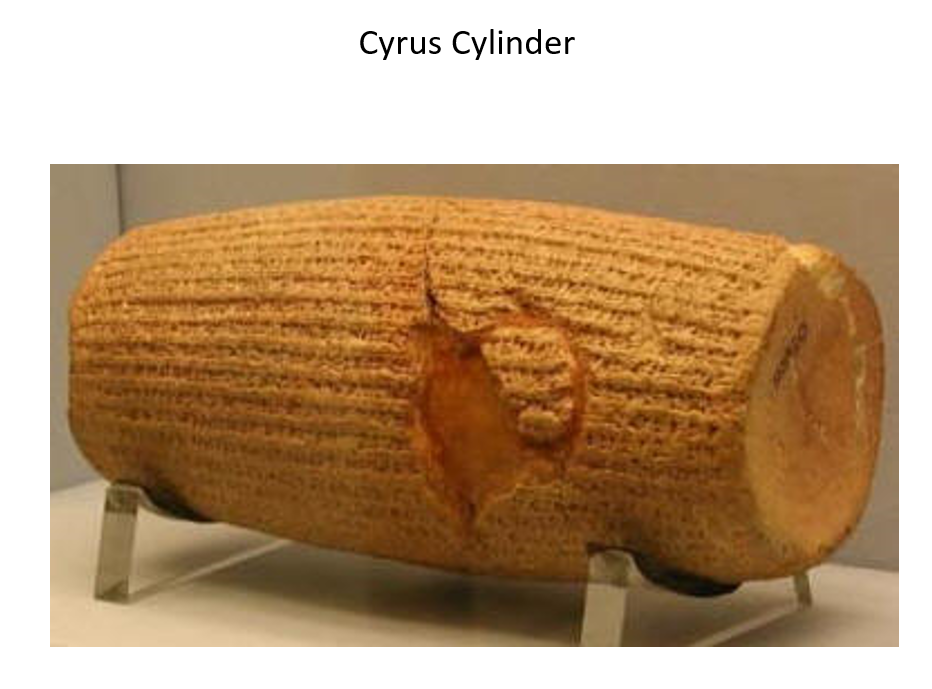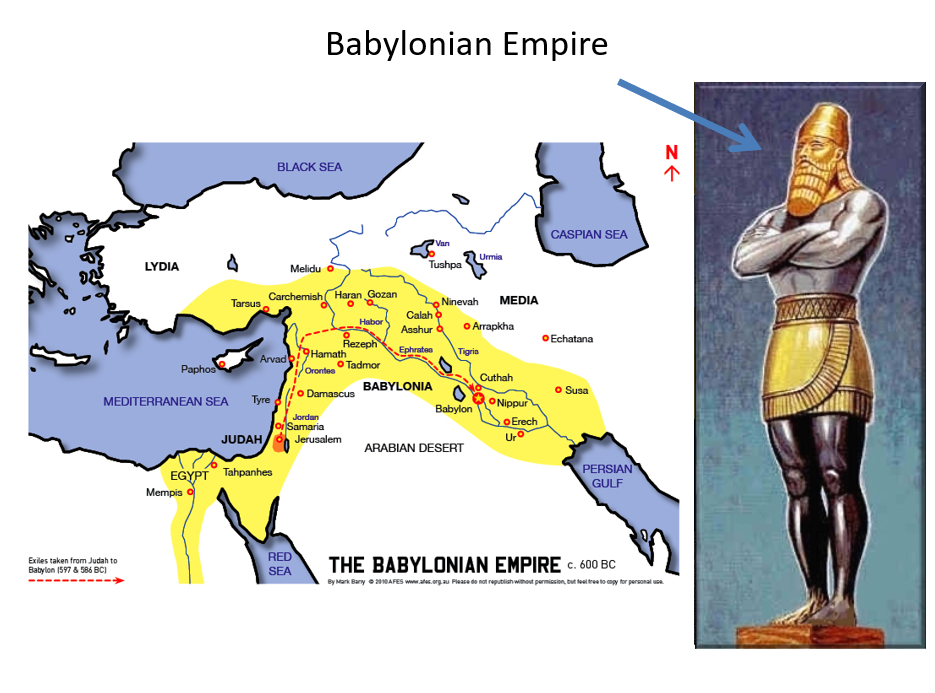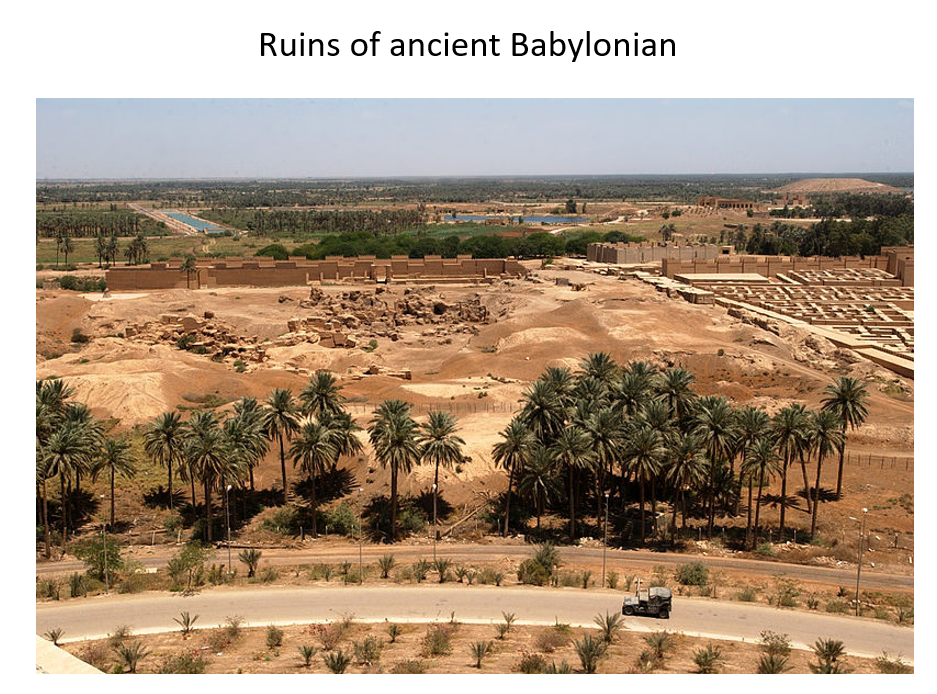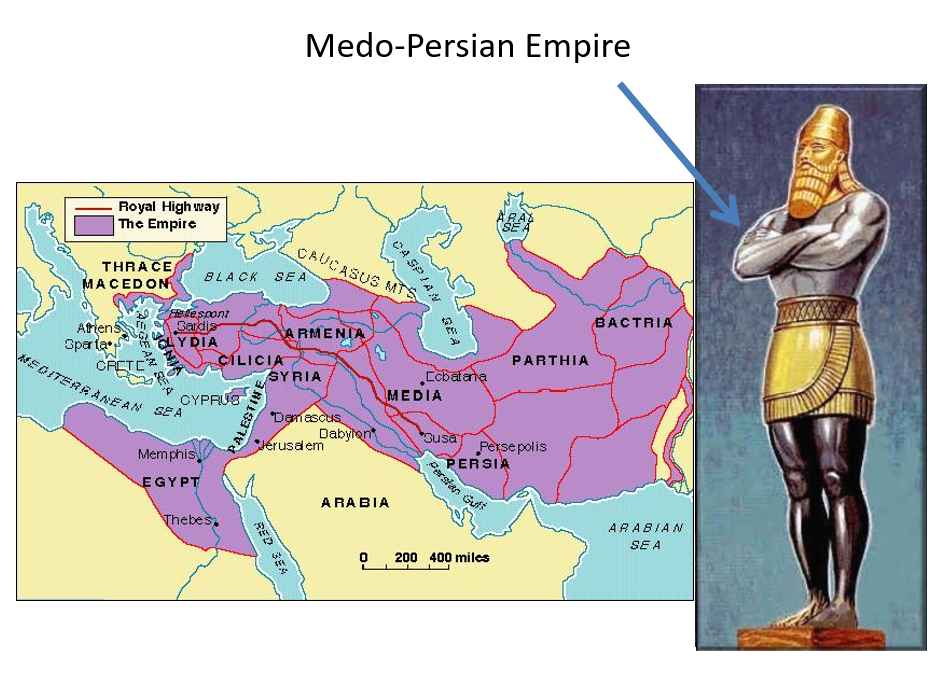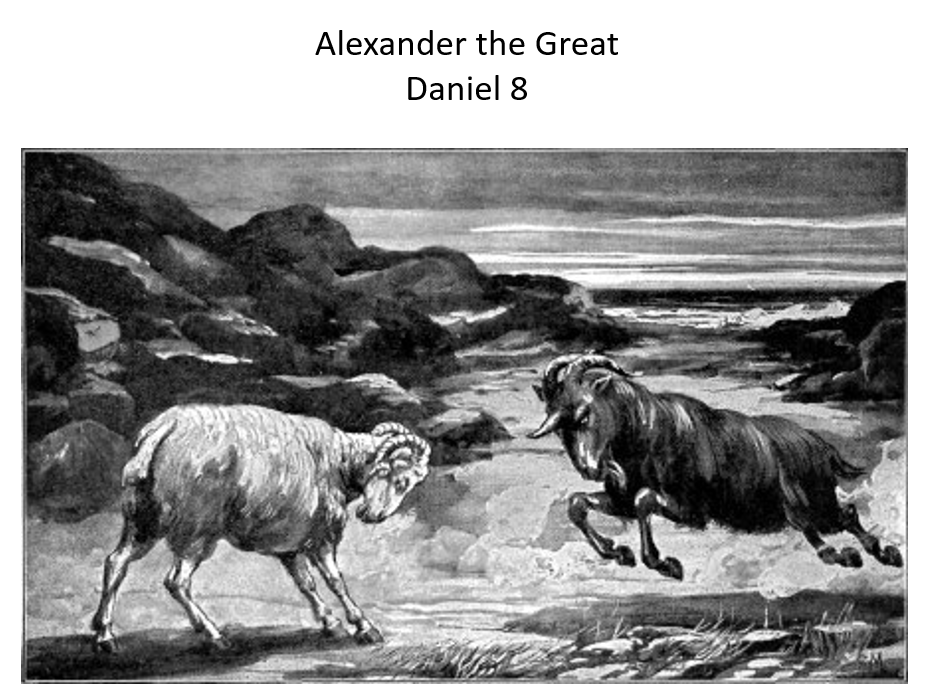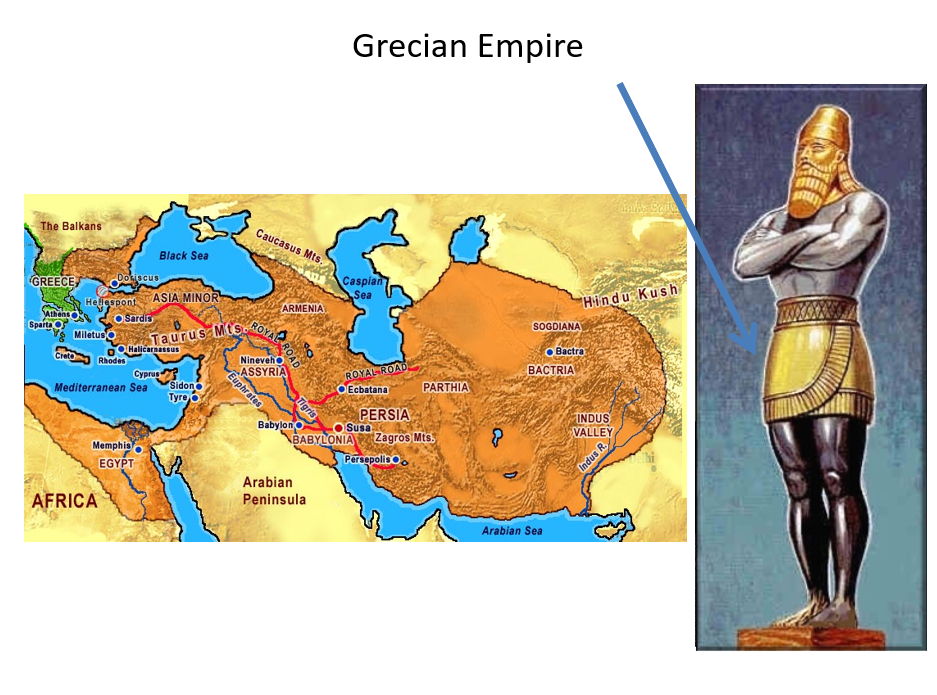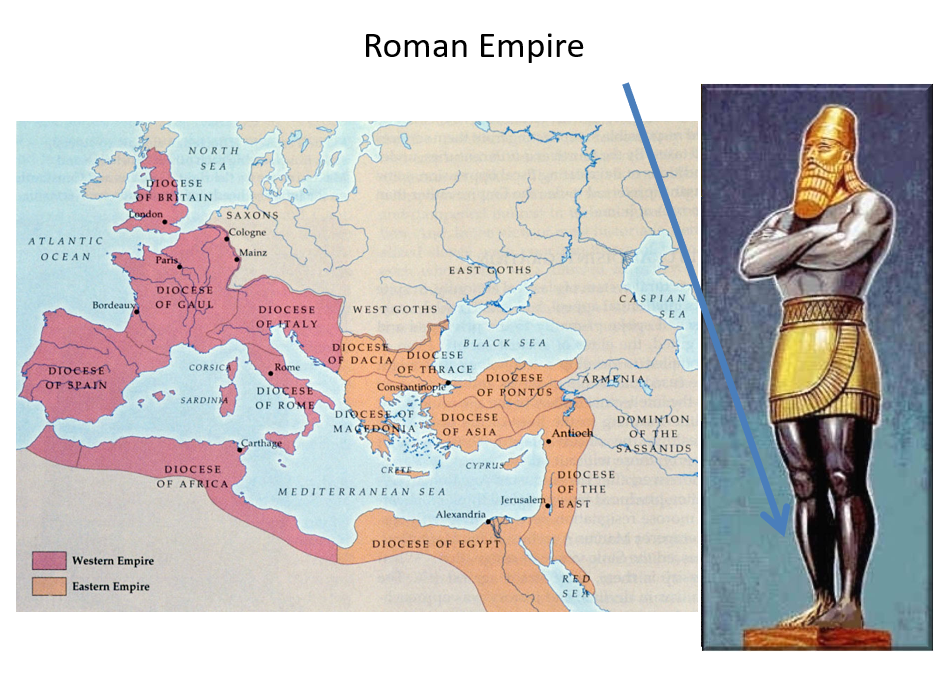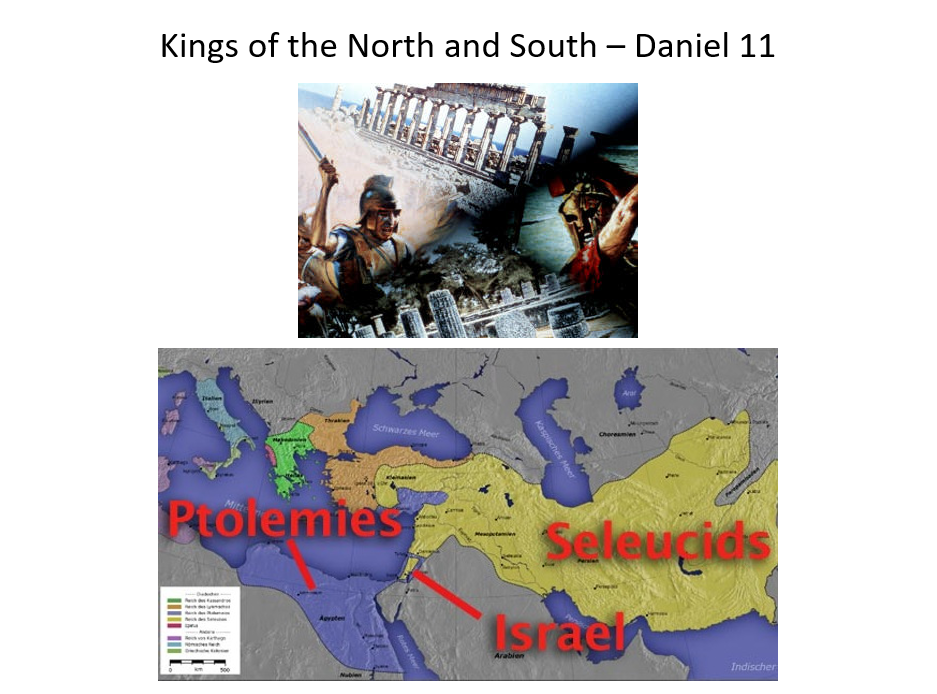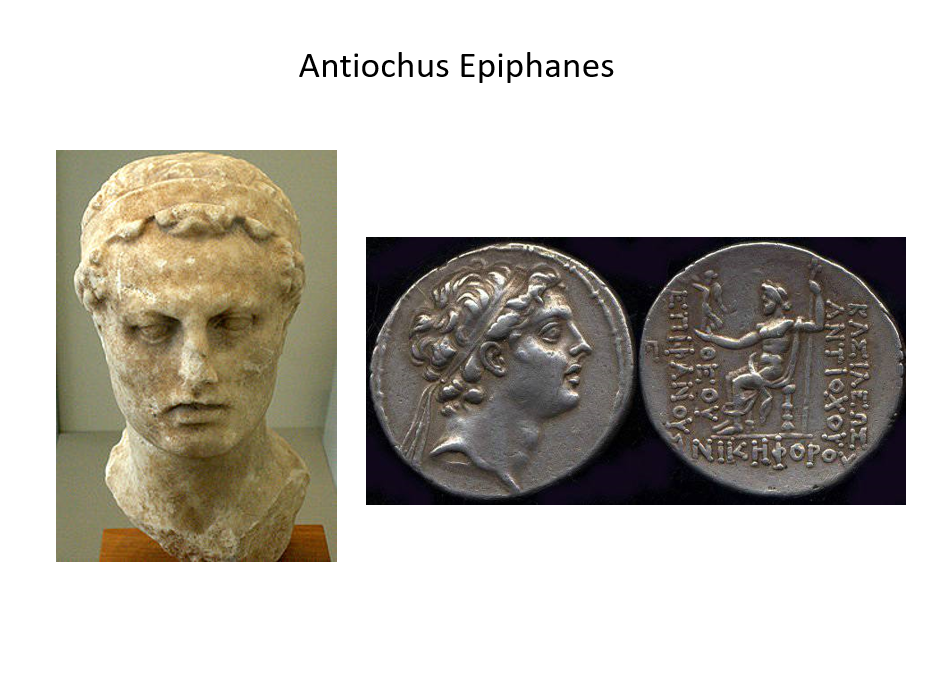The Bible mentions periods of 400 and 430 years relating to how long before ancient Israel entered the Promised Land. The Bible also mentions periods of 450 and 480 years relating to the period of judges in Israel. When and what were these periods of time? We will make a careful examination and come to some conclusions.
The 400 years
A period of 400 years is mentioned in relation to the time period that Abraham’s descendants would be strangers in a country not their own, enslaved, and mistreated.
Gen 15:13 Then He [the LORD] said to Abram: “Know certainly that your descendants will be strangers in a land that is not theirs, and will serve them, and they will afflict them four hundred years.
In the book of Acts, Stephen in his fateful sermon referred to this period of 400 years:
Acts 7:6 “But God spoke in this way: that his descendants would dwell in a foreign land, and that they would bring them into bondage and oppress them four hundred years.
When was the start of the 400 years?
The start of the 400 years is unclear. Gen 15:16 and Acts 7:6 both point to “Abraham’s descendants”. It could perhaps refer to the birth of Isaac, or the death of Abraham, or something else.
When was the end of the 400 years?
The end of the 400 years could be either:
- The Exodus (when ancient Israel left Egypt) or,
- When Israel entered the Promised Land.
How many years after the Exodus did Israel formally enter the Promised Land? This can be worked out from Joshua’s age at key events.
Joshua was 85 years old when he entered the Promised Land.
Josh 14:5 As the Lord had commanded Moses, so the children of Israel did; and they divided the land.
…
Josh 14:10 “And now, behold, the LORD has kept me alive, as He said, these forty-five years, ever since the LORD spoke this word to Moses while Israel wandered in the wilderness; and now, here I am this day, eighty-five years old.
Joshua was 40 years old when he was sent to spy out the Promised Land.
Josh 14:7 “I [Joshua] was forty years old when Moses the servant of the LORD sent me from Kadesh Barnea to spy out the land, and I brought back word to him as it was in my heart.
The spies were sent into the Promised Land one year after the exodus from the events described in Numbers chapters 9 through 13.
Num 9:1 Now the Lord spoke to Moses in the Wilderness of Sinai, in the first month of the second year after they had come out of the land of Egypt, saying:
…
Num 10:11 Now it came to pass on the twentieth day of the second month, in the second year, that the cloud was taken up from above the tabernacle of the Testimony.
…
Num 13:1 And the Lord spoke to Moses, saying,
Num 13:2 “Send men to spy out the land of Canaan, which I am giving to the children of Israel; from each tribe of their fathers you shall send a man, every one a leader among them.”
This means that Joshua was 39 years old at the time of the Exodus, and therefore it was 46 years later when he entered the Promised Land aged 85. So, it was 46 years after the Exodus that Israel formally enter the Promised Land.
So the end of the 400 years is either:
- The Exodus or,
- 46 years after the Exodus (when Israel entered the Promised Land).
Summary of the 400 years
Note that from the above discussion:
- The start of the 400 years is Abraham’s descendants (whatever that is).
- The end of the 400 years is either the Exodus or 46 years after the Exodus (when Israel entered the Promised Land).
The 430 years
A period of 430 years is mentioned in relation to the time period of the sojourn of the children of Israel.
Exo 12:40 Now the sojourn of the children of Israel who lived in Egypt was four hundred and thirty years.
Exo 12:41 And it came to pass at the end of the four hundred and thirty years; on that very same day; it came to pass that all the armies of the LORD went out from the land of Egypt.
The apostle Paul referred to this period of 430 years:
Gal 3:16 Now to Abraham and his Seed were the promises made. He does not say, “And to seeds,” as of many, but as of one, “And to your Seed,” who is Christ.
Gal 3:17 And this I say, that the law, which was four hundred and thirty years later, cannot annul the covenant that was confirmed before by God in Christ, that it should make the promise of no effect.
When was the start of the 430 years?
The start is “that very same day”, but 430 years earlier. What is “that very same day” in Ex 12:41 referring to? It’s referring to the very same day (of the year) that God made the promise to Abram (that Paul referred to in Gal 3:16) that his descendants would receive the land. God promised the land to Abram’s descendants in Gen 12:7, Gen 13:15, Gen 15:13-18, and Gen 17:8. But it is only in Gen 15:13-18 that God told Abram that his descendants would be slaves (strangers in a land that is not theirs, and will serve them), and leave with great possessions, verses 13-14. Furthermore, God would judge the nation they will serve, verse 14.
Gen 15:13 Then He said to Abram: “Know certainly that your descendants [seed] will be strangers in a land that is not theirs, and will serve them, and they will afflict them four hundred years.
Gen 15:14 And also the nation whom they serve I will judge; afterward they shall come out with great possessions.
Gen 15:15 Now as for you, you shall go to your fathers in peace; you shall be buried at a good old age.
Gen 15:16 But in the fourth generation they shall return here, for the iniquity of the Amorites is not yet complete.”
Gen 15:17 And it came to pass, when the sun went down and it was dark, that behold, there appeared a smoking oven and a burning torch that passed between those pieces.
Gen 15:18 On the same day the LORD made a covenant with Abram, saying: “To your descendants [seed] I have given this land, from the river of Egypt to the great river, the River Euphrates—
This prophecy in Gen 15:13-18, about coming out of servitude with great possessions, was fulfilled at the Exodus. It is tempting to want to place the start of the 430 years is Gen 15:13-18, but we should be careful not to prematurely jump to conclusions.
Note that in Gal 3:16 Paul made a point about the promise being to his “seed”, not “seeds”. The word translated “descendants” in Gen 12:7, Gen 13:15, Gen 15:13, 18, and Gen 17:8 is literally “seed”. Indeed, some translations have translated it as seed.
When was the end of the 430 years?
The end of the 430 years is the exodus, as Exo 12:41 makes clear.
Exo 12:41 And it came to pass at the end of the four hundred and thirty years; on that very same day; it came to pass that all the armies of the LORD went out from the land of Egypt.
Summary of the 430 years
Note that from the above discussion:
- The start of the 430 years is when God made the promises to Abram, (Gen 12:7, Gen 13:15, Gen 15:13-18, or Gen 17:8).
- The end of the 430 years is the Exodus, (Exo 12:41).
Resolving the ambiguity of the 400 and 430 years
To recap, we have established with reasonable certainty the following:
- The start of the 400 years is Abraham’s descendants (whatever that is).
- The end of the 400 years is the Exodus or 46 years after the Exodus.
- The start of the 430 years is when God made the promises to Abraham, (Gen 12:7, Gen 13:15, Gen 15:13-18, or Gen 17:8).
- The end of the 430 years is the Exodus, (Exo 12:41).
The only point without ambiguity is the end of the 430 years, which is the Exodus. To resolve the ambiguity of the other points we need to know the age of Abraham at various key events in his life.
- At age 75 Abraham departed Haran, Gen 12:4.
- At age 85 Sarai gave Hagar to Abraham, Gen 16:3.
- At age 86 Ishmael was born, Gen 16:16.
- At age 99 Abraham was circumcised, Gen 17:1,24.
- At age 100 Isaac was born, Gen 21:5.
- At age 175 Abraham died, Gen 25:7.
Considering these key events, we see that the age of Abraham at the start of the 430 years (when God made the promises to him) was one of the following:
- Gen 12:7 75
- Gen 13:15 75 to 85
- Gen 15:13-18 75 to 85
- Gen 17:8 99
Let’s consider the end of the 400 years. It is either the Exodus (coinciding with the end of the 430 years) or 46 years after the Exodus (when Israel entered the Promised Land).
If the end of the 400 years is the Exodus (thus matching the end of the 430 years), then we have to find 30 years difference for the two starts. Looking at the age of Abraham at key events in his life, there is nothing that lends itself readily to a difference of 30 years. There are some who claim that the start of the 430 years is Gen 15:13-18 and that Abraham was 85 years old then. That is certainly plausible, but there are no Scriptures to confirm this. If Abraham was 85 years old at the start of the 430 years, then the start of the 400 years, 30 years later, was when Abraham was 115 and Isaac 15, which they claim was when God tested Abram to sacrifice Isaac. This scenario is possible, but the test of Abraham to sacrifice Isaac is not an obvious fit to Abraham’s “descendants being strangers in a land”, Gen 15:13. Furthermore two assumptions are made: (i) Abraham was 85 in Gen 15:13-15 and, (ii) Abraham was 115 when God tested him to sacrifice Isaac.
What if the end of the 400 years is when Israel entered the Promised Land, 46 years after the Exodus? Since the end of the 430 years is the Exodus, the start of the 400 years is 76 years after the start of the 430 years. The only two significant events in Abram’s life that are 76 years apart are his circumcision (aged 99) and his death (aged 175). It should be noted that these two these events are significant and clearly give Abraham’s age. We have the start of the 400 years to be the death of Abraham (Abraham died at 175). This fits well with Abram’s “descendants being strangers in a land”, as Abram’s descendants could be considered to “start” with his death. We also have the start of the 430 years as the covenant of circumcision. This fits in well with Gal 3:17, as one of the issues the book deals with is circumcision and those of “the circumcision”. Thus, when Paul refers to the law which was 430 years after the covenant, circumcision is an obvious candidate for this covenant.
Summary of the 400 and 430 years
From all that has been discussed we can summarise the most plausible fit.
- The start of the 400 years (Abraham’s descendants) is the death of Abraham, aged 175.
- The end of the 400 years (when Israel entered the Promised Land) is 46 years after the Exodus.
- The start of the 430 years (when God made the promises to Abram) is when Abraham was circumcised, aged 99.
- The end of the 430 years is the Exodus, (Exo 12:41).
Let’s review the Scriptures with this in mind.
Gen 15:13 Then He [the LORD] said to Abram: “Know certainly that your descendants will be strangers in a land that is not theirs, and will serve them, and they will afflict them four hundred years.
The 400 years refers to being “strangers in a land that is not theirs”, and not the parenthetical phrase that follows, “and will serve them, and they will afflict them”. Abraham’s descendants, starting from his death, were in a land not their own, including living in Egypt, and wandering in the desert for 40 years.
Acts 7:6 “But God spoke in this way: that his descendants would dwell in a foreign land, and that they would bring them into bondage and oppress them four hundred years.
Likewise, when Stephen quoted Genesis, the 400 years refers to his descendants who “would dwell in a foreign land”, and not the parenthetical phrase that follows, “would bring them into bondage and oppress them”.
Exo 12:40 Now the sojourn of the children of Israel who lived in Egypt was four hundred and thirty years.
Exo 12:41 And it came to pass at the end of the four hundred and thirty years; on that very same day; it came to pass that all the armies of the LORD went out from the land of Egypt.
The sojourning, that is the time of dwelling waiting to receive the promise made to Abraham when he was 99 years old, was 430 years. The end of the 430 years was on the very same day (but 430 years later) when God made the covenant of circumcision with Abraham. That means the day God made the covenant of circumcision must have been the 15th of the first month, the first day of Unleavened Bread. The Feast of Unleavened Bread pictures coming out of sin, and certainly circumcision pictures that too.
Col 2:11 In Him you were also circumcised with the circumcision made without hands, by putting off the body of the sins of the flesh, by the circumcision of Christ,
The apostle Paul refers to the 430 years in explaining that law does not annul the promise God made to Abraham.
Gal 3:16 Now to Abraham and his Seed were the promises made. He does not say, “And to seeds,” as of many, but as of one, “And to your Seed,” who is Christ.
Gal 3:17 And this I say, that the law, which was four hundred and thirty years later, cannot annul the covenant that was confirmed before by God in Christ, that it should make the promise of no effect.
The promise the apostle Paul refers to is the one when Abraham was circumcised aged 99 (Gen 17). 430 later when the children of Israel left Egypt at the Exodus, God gave His law, codified in the Ten Commandments, to the fledging nation.
Figure 1 below illustrates the 400 years (B to E) and the 430 years (A to C).
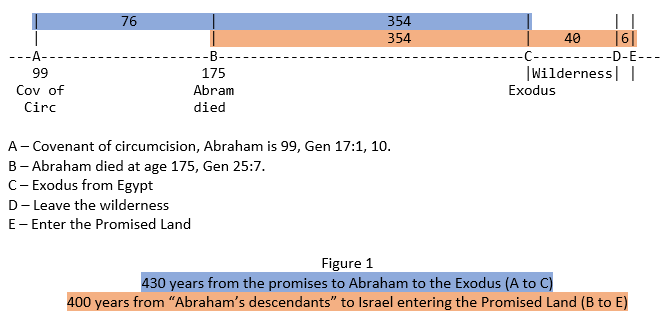
The 450 and 480 years
The Bible mentions periods of 450 and 480 years relating to the period of judges in Israel. In Acts 13:20 the apostle Paul referred to 450 years for the period of judges in Israel.
Acts 13:17 “The God of this people Israel chose our fathers, and exalted the people when they dwelt as strangers in the land of Egypt, and with an uplifted arm He brought them out of it.
Acts 13:18 “Now for a time of about forty years He put up with their ways in the wilderness.
Acts 13:19 “And when He had destroyed seven nations in the land of Canaan, He distributed their land to them by allotment.
Acts 13:20 “After that He gave them judges for about four hundred and fifty years, until Samuel the prophet.
This period of 450 seems to contradict a period of 480 years mentioned in 1 Kings 6:1.
1 Ki 6:1 And it came to pass in the four hundred and eightieth year after the children of Israel had come out of the land of Egypt, in the fourth year of Solomon’s reign over Israel, in the month of Ziv, which is the second month, that he began to build the house of the LORD.
According to 1 Kings 6:1, from the Exodus to when the temple was started was 480 years. We can add up the various time periods within the 480 years as follows:
40 years from the Exodus to when Israel left the wilderness, Num 14:33-34.
Num 14:33 ‘And your sons shall be shepherds in the wilderness forty years, and bear the brunt of your infidelity, until your carcasses are consumed in the wilderness.
Num 14:34 ‘According to the number of the days in which you spied out the land, forty days, for each day you shall bear your guilt one year, namely forty years, and you shall know My rejection.
X (unknown) years from leaving the wilderness to the start of Saul’s reign.
40 years from the start of Saul’s reign to the start of David’s reign, Acts 13:21.
Acts 13:21 “And afterward they asked for a king; so God gave them Saul the son of Kish, a man of the tribe of Benjamin, for forty years.
40 years from the start of David’s reign to the start of Solomon’s reign, 2 Sam 5:4, 1 Ki 2:11.
2 Sam 5:4 David was thirty years old when he began to reign, and he reigned forty years.
1 Ki 2:11 The period that David reigned over Israel was forty years; seven years he reigned in Hebron, and in Jerusalem he reigned thirty-three years.
4 years from the start of Solomon’s reign to the start of building the temple, 1 Ki 6:1.
1 Ki 6:1 And it came to pass in the four hundred and eightieth year after the children of Israel had come out of the land of Egypt, in the fourth year of Solomon’s reign over Israel, in the month of Ziv, which is the second month, that he began to build the house of the LORD.
The sum of these years must be 450 years, which means that the unknown X, which is the time from leaving the wilderness to the start of Saul’s reign, must be 356 years. See Figure 2 below. But the period of the judges falls within this 356 and so must be even less than 356 years. This apparently contradicts the 450 years for the period of the judges stated in Acts 13:21.

What is the explanation? The 480 years given in 1 King 6:1 is an exact statement. It gives a time span down to the nearest month. However, the 450 years mentioned in Acts 13:20 is not an exact statement; it says it was about 450 years.
In Acts 13:20 Paul referred to a period of history which was probably a well-known fact as it doesn’t seem to puzzle his hearers. The books of Judges and 1 Samuel refer to 19 periods of time. These 19 periods of time add up to 450 years which is what Paul referred to. They are listed below.
1. Judges 3:8 8 years Oppressed by Chushan-rishathaim
2. Judges 3:11 40 years Freedom under Othniel
3. Judges 3:14 18 years Oppressed by Eglon, king of Moab
4. Judges 3:30 80 years Freedom under Ehud and Shamgar
5. Judges 4:3 20 years Oppressed by Jabin, king of Canaan
6. Judges 5:31 40 years Freedom under Deborah
7. Judges 6:1 7 years Oppressed by Midian
8. Judges 8:28 40 years Freedom under Gideon
9. Judges 9:22 3 years Freedom under Abimelech
10. Judges 10:2 23 years Freedom under Tola
11. Judges 10:3 22 years Freedom under Jair
12. Judges 10:8 18 years Oppressed by Philistine and Ammon
13. Judges 12:7 6 years Freedom under Jephthah
14. Judges 12:9 7 years Freedom under Ibzan
15. Judges 12:11 10 years Freedom under Elon
16. Judges 12:14 8 years Freedom under Abdon
17. Judges 13:1 40 years Oppressed by Philistine
18. Judges 15:20, 16:31 20 years Freedom under Samson
19. 1 Samuel 4:18 40 years Freedom under Eli
Some of the 19 periods are periods of oppression and some are periods of freedom under a judge. It is not clear whether some judges were serving at the same time as others. Furthermore, a period of servitude in one area of the country might coincide with a period of a judge in another. An example is Samson, Judges 15:20, which appears to fall within a period of Philistine servitude, Judges 13:1.
Jdg 13:1 Again the children of Israel did evil in the sight of the LORD, and the LORD delivered them into the hand of the Philistines for forty years.
Jdg 15:20 And he judged Israel twenty years in the days of the Philistines.
The most likely explanation of how the 450 years period of the judges can fit into less than 356 years is simply that the 450 years are 19 overlapping periods.
The same is often done today. For example, if there are 10 high court judges gathered together, each with 20 years on the bench, then in that room there are 200 years of judging experience. The 200 years is not contiguous. In the same way, some of the 450 years listed in the book of Judges and quoted by Paul, were overlapping and not a continuous block of time.
How many years was Israel in Egypt?
A natural question that comes to mind is how many years was the nation of Israel in Egypt?
From what we have discussed earlier, we know that there were 430 years from the promises made to Abraham at the covenant of circumcision, when he was aged 99, to the Exodus.
Now Abraham was 100 when his son Isaac was born.
Gen 21:5 Now Abraham was one hundred years old when his son Isaac was born to him
So, there were 429 years from Isaac’s birth to the Exodus.
Isaac was 60 when his son Jacob was born.
Gen 25:26 Afterward his brother came out, and his hand took hold of Esau’s heel; so his name was called Jacob. Isaac was sixty years old when she bore them.
So, there were 369 years from Jacob’s birth to the Exodus.
Jacob was 130 when he entered Egypt.
Gen 47:9 And Jacob said to Pharaoh, “The days of the years of my pilgrimage are one hundred and thirty years; …”
So, there were 239 years from the time Jacob entered Egypt to the Exodus.
So, taking the start of Israel’s sojourn in Egypt to be when Jacob entered Egypt, the nation of Israel was 239 years in Egypt.
Conclusion
The 430 years of Exo 12:40-41 and Gal 3:16-17 refer to the time period from the circumcision covenant God made with Abraham to the Exodus. A to C in Figure 3.
The 400 years of Gen 15:13 and Acts 7:6 refer to the time period from Abraham’s death to the entry into the Promised Land (when the land was conquered and divided between the tribes). B to E in Figure 3.
The 450 years in Acts 13:17-20 refer to 450 years of overlapping periods. The total years of all the years each judge ruled sums to 450 years, but some of the judgement periods overlapped.
The 480 years of 1 Kings 6:1 refer to the time period from the Exodus to the start of building the temple (4th year of Solomon’s reign). C to F in Figure 3.
